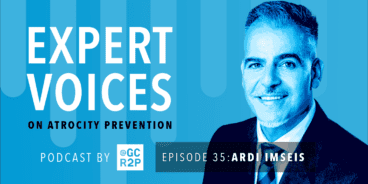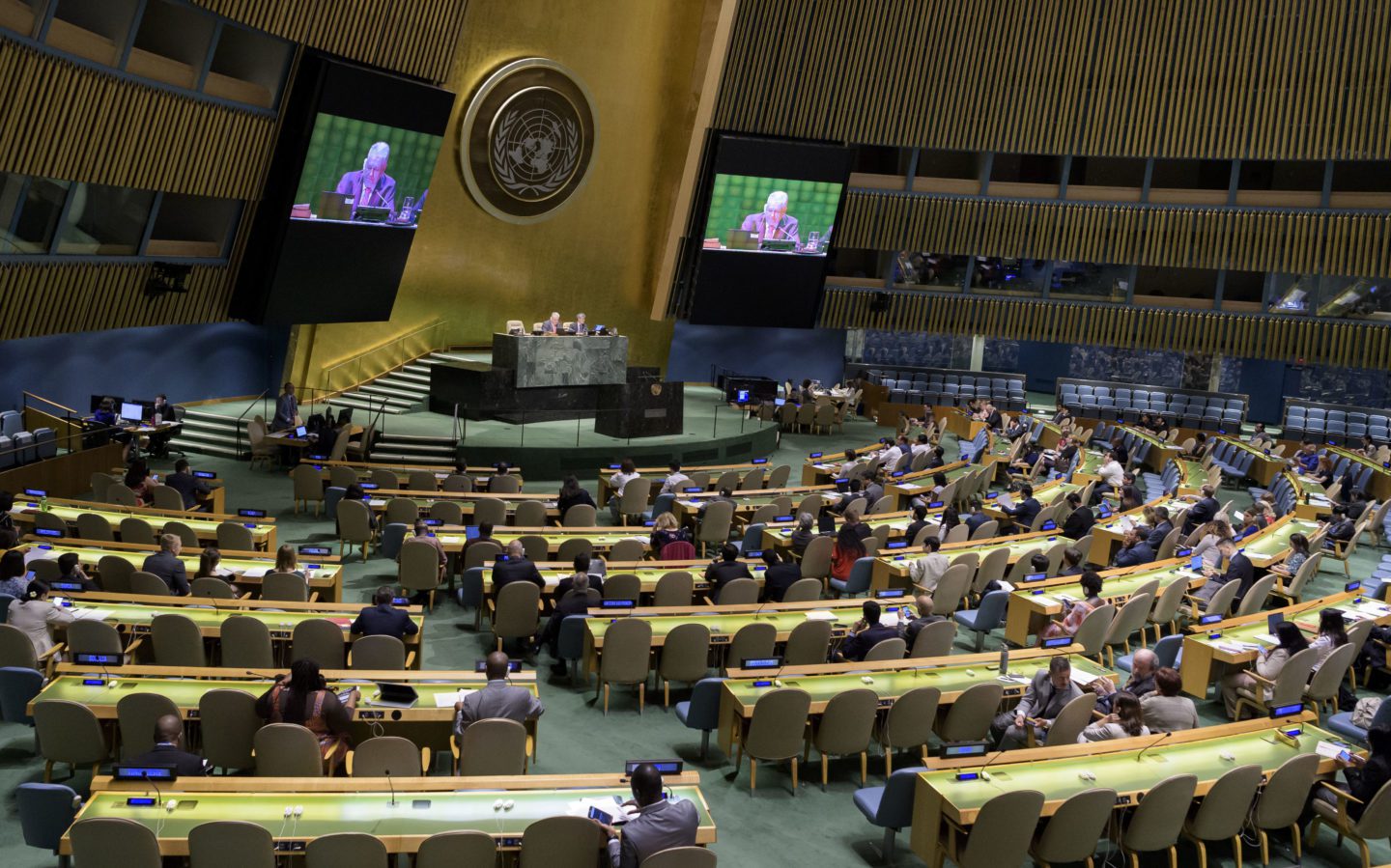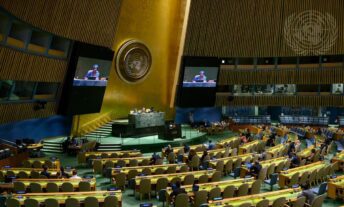
Open Letter to Member States of the United Nations from the Patrons and International Advisory Board of the Global Centre for the Responsibility to Protect
We are writing to urge your constructive participation in the 23 July 2009 General Assembly debate on the Report of the UN Secretary-General, Implementing the Responsibility to Protect.
Whether as ministers, mediators, diplomats, or scholars, each of us has witnessed unspeakable violence perpetrated against innocent civilians in times of war, and persecution and extermination in times of so-called peace.
In September 2005, during the World Summit, more than 170 heads of state and governments agreed to build a better future for human kind: they agreed that it is the state’s responsibility to protect its population from genocide, war crimes, crimes against humanity and ethnic cleansing. And if a state cannot, or will not, prevent or end these crimes, then the international community must – collectively – take timely and decisive action by assisting willing States that are unable to protect their population, or by protecting vulnerable peoples when States are unwilling to do so. This is the responsibility to protect.
We are aware of misperceptions about the responsibility to protect: that this is a western-imposed norm, that it sanctions unwarranted military intervention in violation of sovereignty. We know, too, there are fears that this principle will be misused to justify action by those whose goals are political and not the protection of populations at grave risk. In his report, the Secretary-General carefully details how the doctrine as adopted in 2005 addresses these concerns.
We are aware of questions about how to make this abstract goal a reality. But this is precisely why the General Assembly debate has been convened. The Secretary-General’s report gives concrete examples and asks specific questions about how states can do better internally, how they can do better helping one another, and finally, the many ways in which the international community might respond in a timely way, if prevention fails.
This is a moment to boldly confront these challenges: how will your national systems meet the challenge of protecting people from mass violence and abuse? What assistance do you require or are you willing to provide to other states? What institutions and agencies within your government, in your region, or globally must be strengthened or created?
We hope you will welcome the Secretary-General’s report as a first step for opening this dialogue within the General Assembly. The victims and survivors of Rwanda, Srebrenica, Cambodia and the Holocaust deserve nothing less.
Sincerely,
- Desmond Tutu, Founder, The Elders, former chair, South African Truth and Reconciliation Commission, and Patron of the Global Centre for the Responsibility to Protect
- Lee Hamilton, President and Director, Woodrow Wilson International Center for Scholars, and Patron of the Global Centre for the Responsibility to Protect
- Jan Eliasson, Former Special Envoy of the UN Secretary-General for Darfur, and Patron of the Global Centre for the Responsibility to Protect
- Roméo Dallaire, Senior Fellow, Montreal Institute for Genocide and Human Rights Studies, and Patron of the Global Centre for the Responsibility to Protect
- Lloyd Axworthy, President, University of Winnipeg, former Canadian Foreign Minister, and Patron of the Global Centre for the Responsibility to Protect
- Gareth Evans, President Emeritus, International Crisis Group, former Australian Foreign Minister, and co-chair of the International Advisory Board of the Global Centre for the Responsibility to Protect
- Mohamed Sahnoun, Former UN Secretary-General’s Special Adviser, and co-chair of the International Advisory Board of the Global Centre for the Responsibility to Protect
- Kwesi Aning, Head, Conflict Prevention Management and Resolution Department of the Kofi Annan International Peacekeeping Training Centre, and member of the International Advisory Board, Global Centre for the Responsibility to Protect
- Kenneth Bacon, President, Refugees International, and member of the International Advisory Board, Global Centre for the Responsibility to Protect
- Jan Egeland, Director, Norwegian Institute of International Affairs, former UN Under-SecretaryGeneral for Humanitarian Affairs and Emergency Relief Coordinator, and member of the International Advisory Board, Global Centre for the Responsibility to Protect
- Thelma Ekiyor, Executive Director, West Africa Civil Society Institute, and member of the International Advisory Board, Global Centre for the Responsibility to Protect
- Rama Mani, Councilor, World Future Council, and member of the International Advisory Board, Global Centre for the Responsibility to Protect
- Mónica Serrano, Executive Director, Global Centre for the Responsibility to Protect
- Juan Méndez, Former UN Secretary-General’s Special Adviser on the Prevention of Genocide, and member of the International Advisory Board, Global Centre for the Responsibility to Protect
- Ramesh Thakur, Distinguished Fellow, Centre for International Governance Innovation, former Senior Vice-Rector of the UN, and member of the International Advisory Board, Global Centre for the Responsibility to Protect
- Thomas G. Weiss, Presidential Professor of Political Science, CUNY Graduate Center, Director, Ralph Bunche Institute for International Studies, and member of the International Advisory Board, Global Centre for the Responsibility to Protect
Related Content


Summary of the 2023 UN General Assembly Plenary Meeting on the Responsibility to Protect
